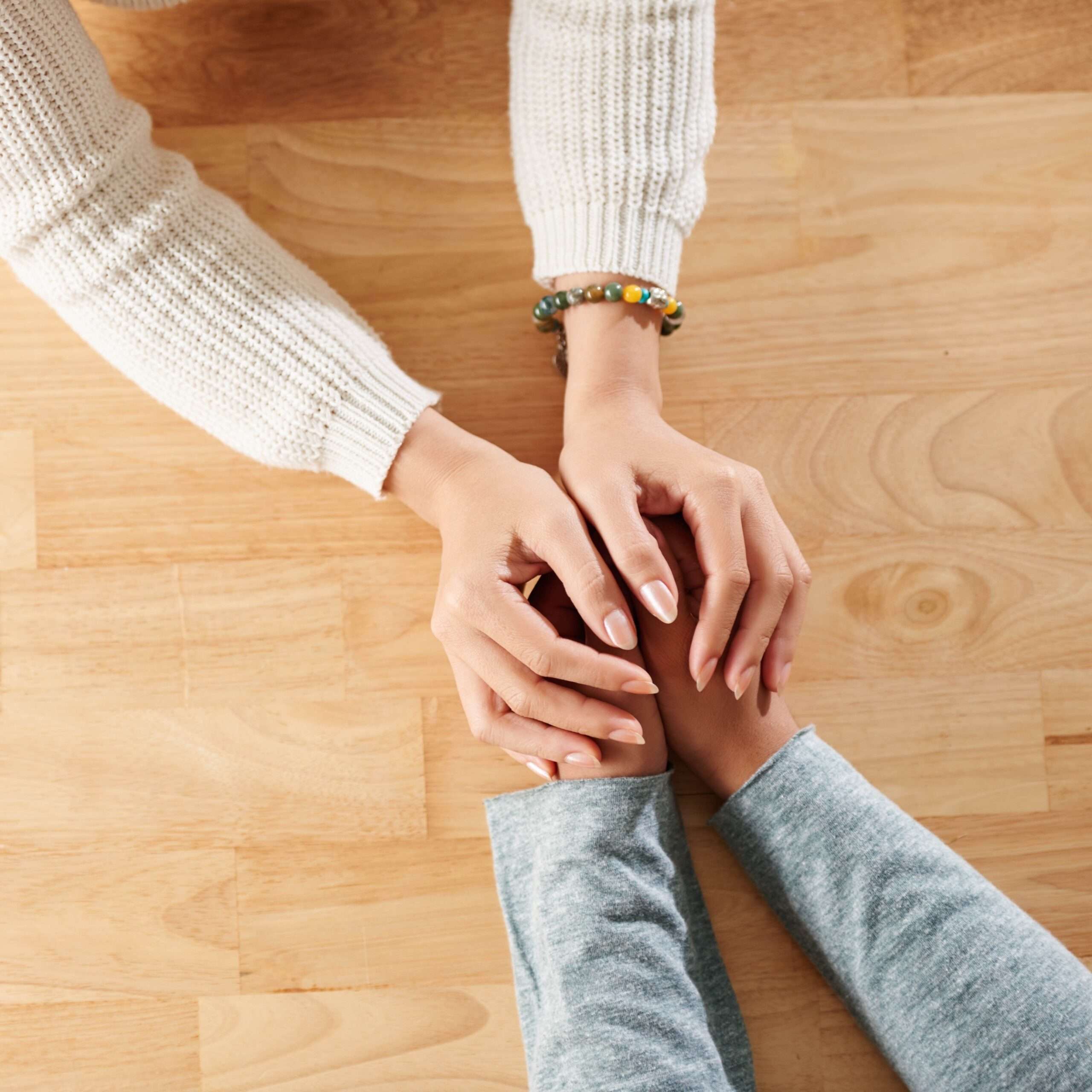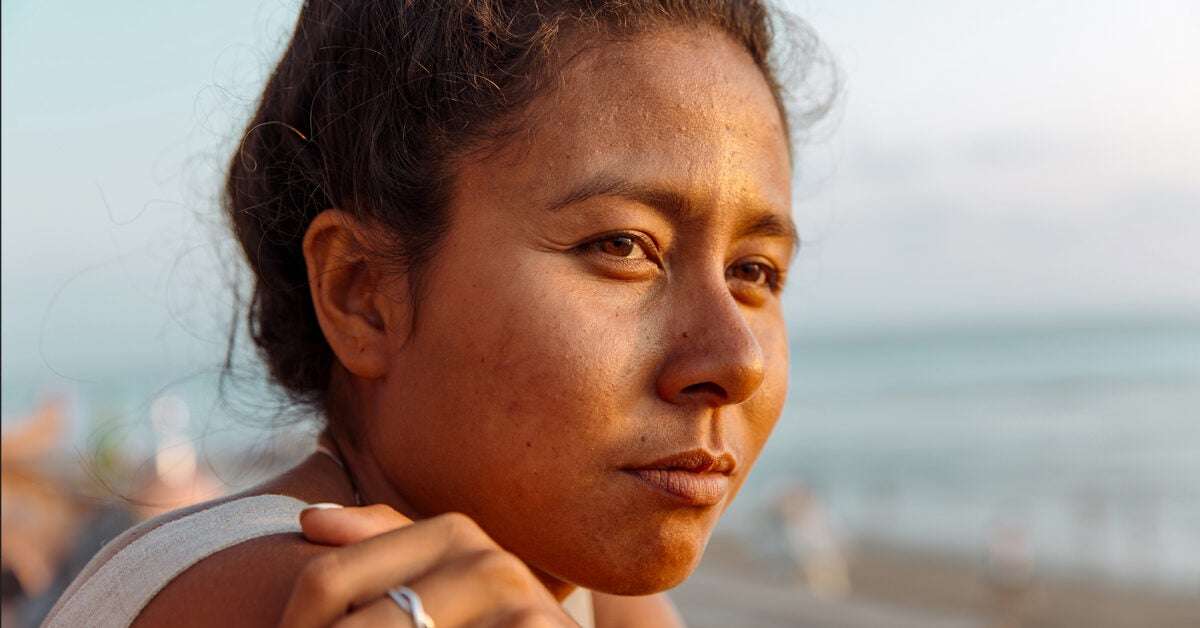6 Things to Do After You’ve Been Sexually Assaulted
- Practice
Begin the process of healing from sexual trauma with these steps to ensure your safety, help you process your experience and develop coping skills for long-term recovery.
The trauma of sexual assault can leave survivors with physical, emotional and psychological wounds. Each survivor has different experiences and needs, and may process and recover from trauma in their own way.
To outline some general steps toward healing, we spoke with Jessica Klein, senior lecturer in the USC Suzanne Dworak-Peck School of Social Work’s Department of Adult Mental Health and Wellness. Klein, who specializes in the clinical treatment of sexual trauma survivors, hopes to provide victims of sexual assault with effective tools for processing their trauma while empowering them to make their own decisions when it comes to reporting the assault, pursuing legal action and seeking treatment.
According to Klein, these are the six steps that every survivor should take in the aftermath of an assault:
1. Ensure your own safety
After the experience of sexual trauma, “the first and most important factor should be prioritizing your safety and well-being,” Klein said. In the immediate aftermath of an assault, most people experience shock, derealization, and a sense of being overwhelmed. After an assault, the limbic system—the part of the brain responsible for processing emotions and triggering fight or flight reactions to perceived threats—is “firing on all cylinders,” she said.
To establish a sense of safety and normalcy, Klein recommends survivors use any coping mechanisms that have helped them feel comfortable in the face of major stressors in the past. “It can mean calling your closest friend or trusted family member to come over and stay with you, or getting into bed under layers of blankets—whatever will help you feel a little bit safer in your own body,” Klein said.
2. Reach out for support
Once you feel more physically safe, it’s important to connect with a person you trust for support. After shock, sexual trauma survivors often experience depression, anxiety and dissociation. In a culture rampant with victim-blaming and doubt surrounding accounts of sexual assault—which may exacerbate trauma—it is crucial to confide in someone you fully trust. Klein recommends finding a person who will not pry into the details of the experience, but who is there to say, ‘I am sorry this happened to you. Are you feeling safe? How can I help you?’
If you prefer to express your experience and emotions anonymously, Klein encourages victims to call a crisis hotline such as the National Sexual Assault Hotline. Hotline operators are trained to offer support, hear your story, connect you with resources for treatment and provide you with information on how to report the crime.
3. Consider your medical options
Many survivors may be reluctant to pursue medical attention in the immediate wake of a sexual assault. It is ultimately up to you to decide what to do in accordance with your own physical, psychological and emotional needs.
Choosing to go to the hospital or a medical rape center after an assault can be beneficial for a number of reasons. Most critically, health care practitioners can treat bodily injury and help ensure your sexual and physical health. Additionally, they can provide you with a rape kit—a sexual assault forensic exam that can be used to collect DNA, blood samples and other evidence. If you are not ready to file a police report immediately, some centers can freeze the evidence and store it for later access.
“Making the decision to obtain a rape kit can be scary, because in a way, you’re admitting to yourself and to others what has happened,” Klein said. But once you feel confident making the decision, Klein says you should go through with the process as quickly as possible. In many places, the window for collecting bodily forensic evidence is just 72 hours (though in the state of California it is 96 hours). If possible, victims who choose to get an exam are encouraged not to shower, comb their hair, use the restroom or change their clothes before completing the rape kit.
4. Process your experience
The desire to simply avoid addressing or processing the incident is a common phenomenon among survivors. “But healing doesn’t happen through avoidance,” Klein said. “You can’t go around it, over it or under it. You have to go through it.” Learning healthy coping habits—which may be as simple as journaling, walking or meditating—can help survivors effectively process their trauma.
Though not every survivor needs therapy, many display symptoms characteristic of both acute stress disorder and post-traumatic stress disorder. “Many survivors doubt their own intuition,” Klein said. “Even though they logically know they were assaulted, paralyzing anxiety can make them wonder, ‘was it my fault? Was it actually consensual?’” This sense of guilt can worsen the negative psychological effects of trauma. As such, therapy may provide an effective forum for mediating, understanding and coping with your emotions.
Klein recommends seeking out a clinician who is specifically trained to address sexual trauma. Memory is dynamic and changing, and each time you remember an event, your brain forms new associations, thereby modifying the memory. As such, therapy can provide a safe space to remember your trauma, and over time, can decrease the negative psychological effects associated with this exercise.
5. Consider your legal options
Some survivors are adamant that they want to file a police report or prosecute the assailant. For many others, the decision is not so cut and dry; they may be reluctant to report the assault immediately and may be confused as to what they should do next.
There are many reasons survivors may not want to report their assault to the authorities or pursue legal action. A major consideration for most victims is the fact that their assaulter was someone they know and with whom they may share mutual friends, family or acquaintances. In fact, a staggering 70 percent of sexual assaults are committed by a person the victim knows. As such, survivors are often plagued with anxiety, shame and fear of what others will think.
The prospect of reliving their trauma by filing a report, speaking with law enforcement officials and possibly testifying against the perpetrator in court can also dissuade victims from coming forward. Klein points to the fact that those who have had negative experiences with police in the past may distrust law enforcement, which can also deter reporting.
If you are struggling with how best to support a loved one who has been assaulted, Klein recommends reinforcing to the survivor that they have options—even when they feel trapped and completely powerless. “Assault is someone taking away your power. Returning that power to the victim often means encouraging them to proceed however feels most empowering to them. This might mean filing a report, telling their story or seeking justice by their own volition,” Klein said.
6. Reconnect to yourself and your life
“Until you process your trauma and learn how to actively cope, it can be difficult to feel like yourself again,” Klein said.
Consider the activities and social outings you may have avoided in the aftermath of your trauma. Stay attuned to your emotions and evaluate if you are ready to go back to that exercise class or join your friends at a party. “A little internal nudge can be good, but never push yourself too far to be social when you aren’t yet ready. Take everything day by day,” she said.
At this stage, Klein recommends group therapy, which can reduce fear, alleviate depression and have other positive psychological, emotional and social benefits. Having the support of a community that understands what you have been through can be a crucial factor in your long-term recovery.
If you or anyone you know has been the victim of sexual abuse or a sexual assault, please visit the Rape, Abuse & Incest National Network (RAINN) for more information.
Experiencing a sexual assault may involve a wide range of emotional and psychological responses. Confusion is very common. First off, what is a sexual assault, and does it always involve rape?
![]()
bonniej / Getty Images
The Difference Between Rape and Sexual Assault
Rape is forced sexual intercourse or penetration by the offender (including physical force and psychological coercion). Rape can involve both women and men who are victims (or perpetrators). It occurs between heterosexuals as well as homosexuals (same-sex rape) and more.
Sexual assault happens when a person intentionally, sexually touches another person without consent. Sexual assault can involve a very wide range of crimes—separate from rape—such as attacks, unwanted sexual contact between the offender and the victim such as grabbing or fondling, as well as verbal threats. Sexual assault may or may not involve penetration (rape).
What to Do After a Sexual Assault
After a sexual assault, it may be difficult to know, exactly what to do or how to respond. A flood of emotions may overwhelm a person who has just experienced such a trauma, causing anger, pain, extreme fatigue, and more. Deciding just what to do next may seem very complicated and confusing.
Each survivor is different regarding the perception of the experience as well as individual needs after the event. Each person recovers from a traumatic event differently. Learning what to do if you are sexually assaulted can help to clarify your future actions and ground you during a very trying time.
The initial steps, According to Jessica Klein, a licensed clinical social worker and part of the social work adjunct faculty at the University of Southern California, the initial steps to recovery from sexual assault include the following.
A person who is in immediate danger should call 911 right away.
Step #1. Ensure Your Safety
The most important thing to do immediately after a sexual assault is to ensure you are in a safe place. This practicality could be overlooked in the immediate aftermath of emotional trauma. During a physical/sexual assault the brain is in hyper-reaction mode. During trauma, the limbic system (the part of the brain that involves processing emotions and is responsible for the fight or flight mechanism) takes over the logical part of the brain. According to Jessica Klein, “the first and most important factor should be prioritizing your safety and well-being.” Establishing a sense of safety and well-being can involve many different action steps. “It can mean calling your closest friend or trusted family member to come over and stay with you, or getting into bed under layers of blankets—whatever will help you feel a little bit safer in your own body,” Klein said.
Step #2. Reach out for Support
Once a sense of safety has been established, the next step is to reach out for support. Klein explains that after a person has experienced the initial shock of sexual trauma, it is often followed by a period of anxiety or depression.
Another psychological experience that may be common after a sexual assault is called “dissociation.” Dissociation is a feeling of being disconnected from a person’s sensory experience, sense of self, or personal history. Klein recommends that the support should come from a trusted person, one who will not attempt to inquire into the details of the assault, but, rather, will listen attentively and offer emotional support.
RAINN Hotline
One option for reaching out for support is to call a victim crisis hotline, such as the National Sexual Assault (RAINN) Hotline at Call 800-656-HOPE (4673). RAINN has specially trained operators who are experienced in working with victims of sexual assault. The emergency hotline is also prepared to connect with important resources such as local healthcare facilities and information on reporting the assault to the local criminal authorities.
When you call the HOPE hotline, your call will be routed to a local RAINN affiliate organization (based on the first six digits of your phone number). When calling in on a cellular phone, there will be an option to enter your ZIP code (to more accurately route you to the nearest local sexual assault service provider).
Step #3. Seek Medical Attention
Although, many people who have been sexually assaulted may initially hesitate to pursue professional medical care, it is highly advised to go to a hospital or medical rape center after an assault. The decision to seek medical attention is ultimately the choice that each survivor must make for themselves, according to their own emotional, physical and psychological needs. But there are many benefits of seeking immediate medical attention, including:
- Receiving a forensic exam (rape kit) designed to collect DNA and other evidence
- The choice to freeze the evidence for those who need a little more time to decide whether to pursue legal action
- Receiving emotional support from trained healthcare providers
- Learning about resources such as counseling services, resources for ongoing medical care and more.
Deciding to go forward with obtaining a rape kit can be a very big step after a sexual assault; this is because it is an action step that solidifies the fact that the sexual assault really did occur, and it proclaims the truth to self and others. This action step may help a person break through some of the denial that is often part of the aftermath of a sexual assault. When a person is in a state of denial, not only does the denial create an obstacle to seeking medical care, it may also make it harder to take other important action steps in the recovery process.
When a person decides to pursue legal action against a perpetrator of sexual assault, it’s important to refrain from taking a shower, combing one’s hair, changing clothes. or urinating before getting a rape kit. These actions may destroy physical evidence.
Step #4. Process the Experience
After a sexual assault experience, there is often a very strong urge to put the event on the back burner, avoiding processing the entire incident. But, it’s vital to address it. This means learning healthy coping mechanisms to deal with the emotions and psychological impact that a sexual assault often has on a person.
Klein says “healing doesn’t happen through avoidance. You can’t go around it, over it or under it. You have to go through it.” Healthy coping mechanisms may involve writing about the incident, talking about it (processing it) with someone else, getting professional counseling or more.
Although not everyone will need professional counseling after a sexual assault, there is a high risk for various emotional issues and psychological phenomenon to occur, such issues may include:
- Denial (being unaware that the sexual assault has occurred and refusing to process it)
- Memory loss (being unable to recall some or all of the details of the traumatic event)
- Self-doubt (not trusting one’s own intuition, blaming self for the cause of the assault)
- A sense of guilt (which can worsen the negative psychological impact of trauma)
- Anxiety (of various levels from mild anxiety to panic attacks and severe paralyzing anxiety)
- Post-traumatic stress disorder (a condition that can be treated by a mental health professional, involving the inability to recover after experiencing or witnessing a traumatic event)
If counseling is a course of action that is decided upon, it’s important to find a professional who is specially trained to work with those who have been sexually assaulted. Mental health treatment (therapy) can help a person who has been sexually assaulted to break through denial, remember traumatic events, and more. Therapy is aimed at decreasing the overall negative psychological effects of experiencing trauma.
Step #5. Consider Your Legal Options
Seeking legal action may seem like the obvious course of action after a sexual assault happens. But, it’s much more complicated. Many people who have been sexually assaulted are confused (partially due to the emotional toll that sexual assault often takes on a person). They may be very reluctant to report the assault right away, this may be partially due to the fact that sexual assaults commonly involve a person that the victim knows. In fact, according to the Center for Family Justice 8 out of 10 sexual assaults involve the victim knowing the attacker and approximately 6 out of 10 rape cases occur in the victim’s home (or in the home of the victim’s friend or relative).
These statistics, involving such a high percentage of victims who know their assaulter (and are often well acquainted with friends and family members of the perpetrator) is one reason that victims of sexual assault often experience a very high level of shame, anxiety, and fear of what others will think. This is particularly the case when a victim of sexual assault considers whether to pursue legal action. Another factor that often dissuades a victim from reporting a rape is the thought of having to testify in front of the perpetrator in court.
If you are a person who is having trouble deciding whether to report a sexual assault, it’s important to realize that you are not powerless in the situation and that you do have options. “Assault is someone taking away your power. Returning that power to the victim often means encouraging them to proceed, in any way that feels most empowering to them. This might mean filing a report, telling their story or seeking justice by their own volition,” explained Klein.
Step #6. Reconnect With Community and Friends
After learning to cope and processing the trauma of sexual assault, it’s not always simple to go back to your old life or to feel like yourself again. For example, many victims may stay paralyzed in fear, avoiding situations or places that remind them of the event. “A little internal nudge can be good, but never push yourself too far to be social when you aren’t yet ready. Take everything day by day,” Klein said. If a person is stuck and unable to resume normal life after a sexual assault, it’s important to seek help.
Group therapy is one way to reconnect; it may help to reduce or alleviate symptoms of depression and improve overall psychological and emotional well-being. A group facilitator who specializes in group therapy for those who have been sexually assaulted is recommended. Establishing a supportive community (group) that fully understands what a sexual assault victim has gone through—that fully understands what sexual assault victim has gone through—often helps victims in their long-term recovery.
Other suggestions for reconnecting after a sexual assault include getting involved in social activities, reconnecting with old friends and making new ones. Consider taking a class, joining a local gym, or participating in a social event at work, even if you initially don’t feel like being social.
Step #7. Engage in Ongoing Self-care
This is a long-term step that involves being kind to yourself, which is important when recovering from some of the self-blame, self-doubt, guilt or other negative emotions commonly experienced by sexual assault victims. Nurturing yourself may involve many different action steps, including:
- Take the time to adequately regenerate your body and mind, avoid the tendency to continually stay busy in an effort to avoid your feelings
- Learn to employ relaxation techniques such as yoga, meditation or guided imagary
- Consider starting a regular exercise program (if you have not already been physically active)
- Seek out medical attention for any physical problems (such as loss of sleep)
- Avoid things that may be used to provide an emotional bandaid (such as the use of drugs or alcohol)
Alcohol is considered a depressant and it can interfere with the normal emotional healing process and is known to worsen symptoms of trauma (such as anger, depression and social isolation). Many therapists recommend abstaining altogether from alcohol use during therapy.
Avoid alcohol and drugs. Avoid the temptation to self-medicate with alcohol or drugs. Substance use worsens many symptoms of trauma, including emotional numbing, social isolation, anger, and depression. It also interferes with treatment and can contribute to problems at home and in your relationships.
Statistics
Learning about the statistics pertaining to the number of people who experience sexual abuse or assault may help those who have gone through similar trauma to know that they are not alone. Knowing the facts may also help to alleviate some of the self-blame or guilt that often follows a sexual assault. There are some surprising facts involving regarding sexual assault and sexual abuse in the U.S. According to the Center for Family Justice, these include:
- Every 9 seconds a person in the United States is sexually assaulted
- 1 in 4 women and 1 out of 6 men are sexually abused during their lifetime
- 1 in 2 transgender individuals will experience sexual violence
- 1 in 4 bisexual women will experience sexual violence
- 2 out of every 5 homosexual men will be sexually abused
- 13.3% of college women report they have been forced to have sex in a dating situation
- Up to 83% of females and 32% of males who are disabled adults have been victims of sexual violence
- Only 28% report their sexual assault to the police
- Only around 2% of all sexual assault reports filed with the police department turn out to be false reports
Additional Steps to Recovery
Other steps to recovery from sexual assault may include:
- Realizing you are not alone
- Hearing (or reading) stories from other survivors
- Educating yourself on available resources
- Planning a safety strategy (to set up a plan to stay safe in the future)
Receiving medical attention (for any physical injuries you may have undergone) - Learning how to talk about the sexual assault and how to tell others about the sexual assault
A Word From Verywell
Keep in mind that recovering from sexual assault or abuse usually takes time; it’s a process that is not always the same for each person. For some people, recovery may take weeks or months; for others, recovery may involve years. The most important thing to remember is that you are not alone. Many others have, unfortunately, been faced with having to walk a similar path to recovery. Reach out, connect with those who have been there and perhaps most importantly, be gentle on yourself. Allow yourself to do the things you need to do and to take the time that you need to navigate your recovery process.



